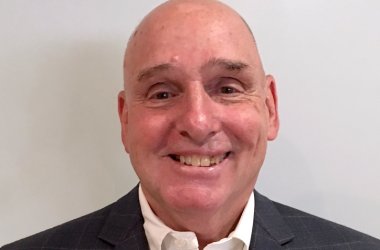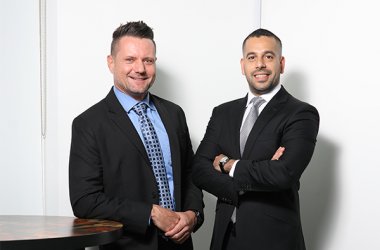
Thought leaders from business and technology deliberated on key issues around convergence of IT and corporate strategy
On 27 July 2011, the second annual Software Congress was organised by CPI in Dubai. The half-day Congress featured speakers from various corporate end-user organisations and sponsors including Etisalat and SAS.
The speakers included: Dr Deepak Kalra, Group IT manager, Safeer Group; Dr Hazem Turki El Khatib, CIO Department of Finance, Abu Dhabi; Carel Badenhorst, Head of technology practice, SAS ME; and Ahmed Al Hammadi, Manager, Product marketing e-hosting, Etisalat.
After the four speaker sessions a panel discussion was held with Sathya Mithra Ashok, Senior Editor of CPI’s Computer News as the moderator. All the speakers were invited as members of the panel discussion. In addition they were joined by Ramesh Krishna Bhandari, Business Development Specialist, Central Marketing, Etisalat; Arun Tewary, CIO, Emirates Flight Catering and Rolf Elevald, Director of Information and Software Development, Jumeirah Group.
A lot of the debate focussed around adoption drivers and inhibitors for Cloud based computing. Excerpts of the key statements from the sessions and the panel discussion:
===================
Dr Deepak Kalra, Group IT manager, Safeer Group
On ups and down of IT spending: Business will not invest in IT, if they are not doing good business
On managing recession: A rolling-wave approach for IT spending may be necessary, since long-term planning is not possible
On selection of a supplier: They should be able to defy you in terms of thinking
On selection of a technology: Don’t run after a new technology, focus on matured technologies
On selection of a supplier: Look for a supplier who is in real need of order’s
On project management: There is nothing like best practices, every organization is different.
On project management: The success or failure of a project is yours not of the implementation partner
=======================
Ramesh rishna Bhandari, Business Development Specialist, Central Marketing, Etisalat
On late adopters to cloud services: I don’t see ERP moving to the cloud in a hurry. They might move to the private cloud.
On first movers to the cloud: I see the SMEs moving to the cloud
On Inhibitors to cloud adoption: Nobody is asking you to move lock, stock and barrel into the cloud.
On Cloud SLA’s: Check the SLA for a pay-back or guarantee clause for free service in return
On Cloud technologies: Vendors are being forced to move to the cloud
On services: As consultants we can help you to move to the Cloud, since it helps us
On SLAs: We can provide an end-to-end SLA for a cloud application
=======================
Dr Hazem Turki El Khatib, CIO Department of Finance, Abu Dhabi
On cost of roll outs: An ERP implementation can cost upto AED 15 million per govt department
On consolidation: We are hosting 30 ERP solutions for govt departments
On changing role of IT: The challenge is to move from a technology partner towards a strategic partner
On relevance of Cloud: Cloud computing is an IT issue not an end user issue
On IT planning: Each IT manager needs to have a three-year IT strategy.
On Cloud adoption: In the Middle East we are not yet ready for the Cloud
On changing the outlook: All IT initiatives are business initiatives
On using business jargon: Don’t say CRM, say getting and keeping customers
=======================
Carel Badenhorst, Head of technology practice, SAS ME
On adoption of new technologies: You have to very careful with new technologies, since you are sitting on a gold mine of data that has to shine
On inhibitors to data analysis: 60% of cases data is not shared because of ownership or politics
On inhibitors to data analysis: 61% of cases data is not shared because of corporate culture based on silos
On inhibitors to data analysis: 42% of cases data is not shared because of lack of business sponsorship
On need for DW application: Lack of trusted data available in real time at customer touch points to make more effective business decisions
=======================
Ahmed Al Hammadi, Manager, Product marketing e-hosting, Etisalat
On server under utilisation: 45% of RAM not used 99.9% of time, 85% of CPU not used 99.9% of time, 68% of hard disk space not used at all
On server ramp-up time: We need 4-6 weeks lead time to set up an Etisalat server
On post-virtualisation benefits: Server utilisation increases from 10% to 75%
On post-virtualisation benefits: 100 servers can be reduced to 8 servers
On disaster recovery: Out of country, backup requests are considered on case to case basis
=======================





